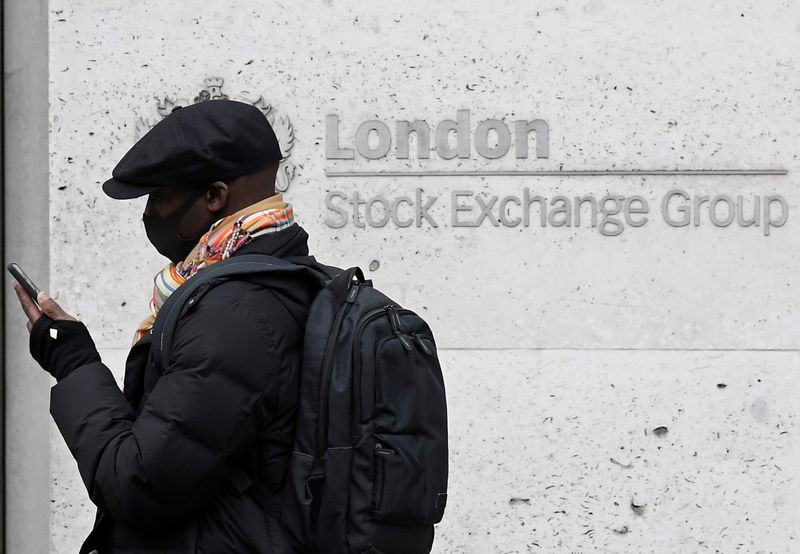By Khushi Singh and Siddarth S
(Reuters) -The UK's FTSE 100 fell on Friday as lower oil prices pulled down heavyweight energy stocks, but both the benchmark index and the FTSE 250 posted weekly gains as hopes that the end of the global monetary tightening cycle is nearing boosted risk appetite.
The commodity-heavy FTSE 100 closed 0.4% lower but snapped a two-week losing streak with a gain of 1.7% since Monday. The mid-cap index rose 1.2% on Friday to post its strongest weekly performance in nearly a year, up 6.6%.
The oil and gas sector fell the most, down 3.4% as it tracked a more than 1% fall in oil prices as supply concerns driven by the Middle East conflict eased and top importer China's demand outlook remained uncertain. [O/R]
At the other end of the scale, precious metal miners rose nearly 4% tracking gold prices which rose as the dollar weakened. [MET/L]
Interest rate sensitive stocks extended gains after the Bank of England held interest rates at a 15-year peak of 5.25% on Thursday, although it said did not expect to cut them any time soon.
Both real estate stocks and homebuilders gained more than 2% on Friday.
Sterling strengthened and was last up 1.4% against the dollar and set for its biggest weekly gain in nearly a year.
"Risk appetite has benefited from the unchanged interest rate decisions of the U.S. Federal Reserve, the European Central bank and the BoE," said Stuart Cole, chief macro economist at Equiti Capital.

"The message, the market is taking away is that, all three of these central banks have probably reached the end of their tightening cycle."
Medical products maker Smith+Nephew rose 2% after JPMorgan (NYSE:JPM) upgraded the stock to "overweight" from "neutral", and shares of British electricals retailer Currys were up about 4% after it agreed to sell its Greek business Kotsovolos to Public Power Corporation.